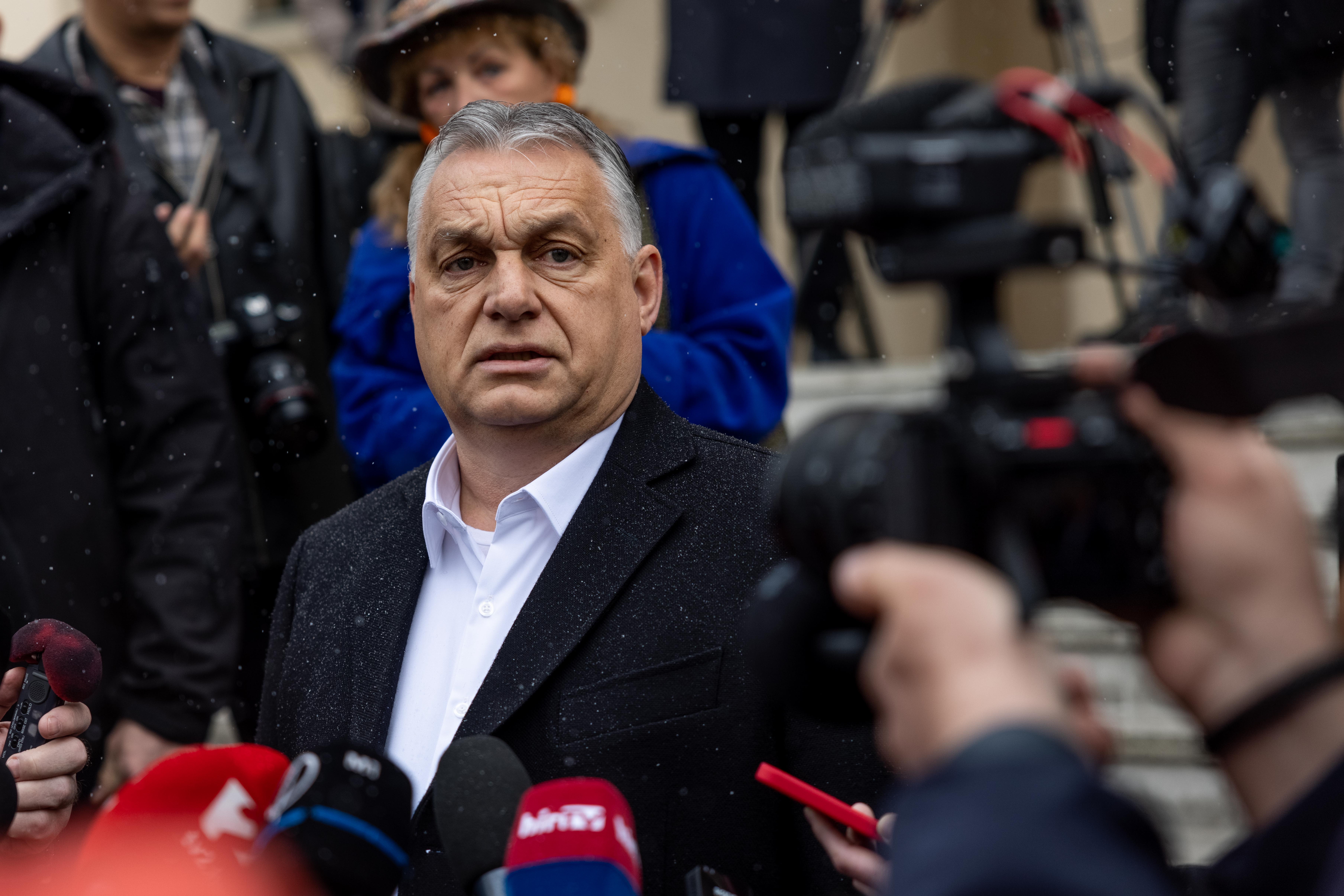EU bows to Hungarian concerns and agrees compromise deal on Russian oil ban
Viktor Orban says a full embargo would have been an ‘atomic bomb’ for Hungary

Your support helps us to tell the story
From reproductive rights to climate change to Big Tech, The Independent is on the ground when the story is developing. Whether it's investigating the financials of Elon Musk's pro-Trump PAC or producing our latest documentary, 'The A Word', which shines a light on the American women fighting for reproductive rights, we know how important it is to parse out the facts from the messaging.
At such a critical moment in US history, we need reporters on the ground. Your donation allows us to keep sending journalists to speak to both sides of the story.
The Independent is trusted by Americans across the entire political spectrum. And unlike many other quality news outlets, we choose not to lock Americans out of our reporting and analysis with paywalls. We believe quality journalism should be available to everyone, paid for by those who can afford it.
Your support makes all the difference.European Union leaders handed Hungary concessions to agree an oil embargo on Russia over its invasion of Ukraine, sealing a deal on Tuesday that aims to cut 90 per cent of Russia’s crude imports into the bloc by the end of the year.
By making a promise that the EU’s embargo excludes the pipeline that landlocked Hungary relies on for Russian oil, the bloc aims to reduce Moscow’s income to finance the war it launched three months ago in Ukraine.
“It’s a fair compromise... this was the best we could get,” Estonia’s Prime Minister Kaja Kallas told reporters as she arrived for the second day of an EU summit, where leaders will discuss ways to mitigate soaring energy prices.
Hungarian Prime Minister Viktor Orban, fresh from re-election and now one of the bloc’s longest-serving leaders, repeated that a full embargo would have been an “atomic bomb” for the Hungarian economy.
“It would have been unbearable for us to operate the Hungarian economy with the more expensive (non-Russian) oil... this would have amounted to an atomic bomb but we have managed to avoid that,” Orban said in a video posted on Facebook.
The embargo - once legally imposed in the coming days - will hit seaborne shipments of Russian oil and encompass most imports from Russia once Poland and Germany stop buying it by the end of 2022, which diplomats and officials from both countries said was now government policy.
The remaining 10 per cent will be temporarily exempt from the embargo so that Hungary, Slovakia and the Czech Republic have access via the Druzhba pipeline from Russia.
Latvia’s Prime Minister Krisjanis Karins said keeping the EU united was the prime goal, despite effectively giving into the demands of Hungary, a member state that rights groups say is increasingly authoritarian and combative vis-a-vis the bloc.
“The important news is that the EU is still united in its purpose; the purpose is to stop Russia’s aggressive war in Ukraine,” Mr Karins said.
Russian gas, next target?
While there are still details to be thrashed out, the oil embargo deal follows an earlier ban on Russian coal and allows the bloc to impose a sixth round of sanctions that includes cutting Russia’s biggest bank, Sberbank, from the SWIFT international system.
Moscow, which says its war in Ukraine is a “special military operation” to rid Ukraine of dangerous nationalists, has responded to EU sanctions by cutting energy supplies to Bulgaria, Poland, Finland and the Netherlands.
Targeting Russian natural gas supplies was set to be the EU’s next diplomatic battleground in the weeks ahead, after pushing through the oil embargo.
Several leaders on Tuesday called for work to begin on a seventh round of sanctions. In response, Austrian Chancellor Karl Nehammer said: “Gas can’t be part of next sanctions.”
Join our commenting forum
Join thought-provoking conversations, follow other Independent readers and see their replies
Comments